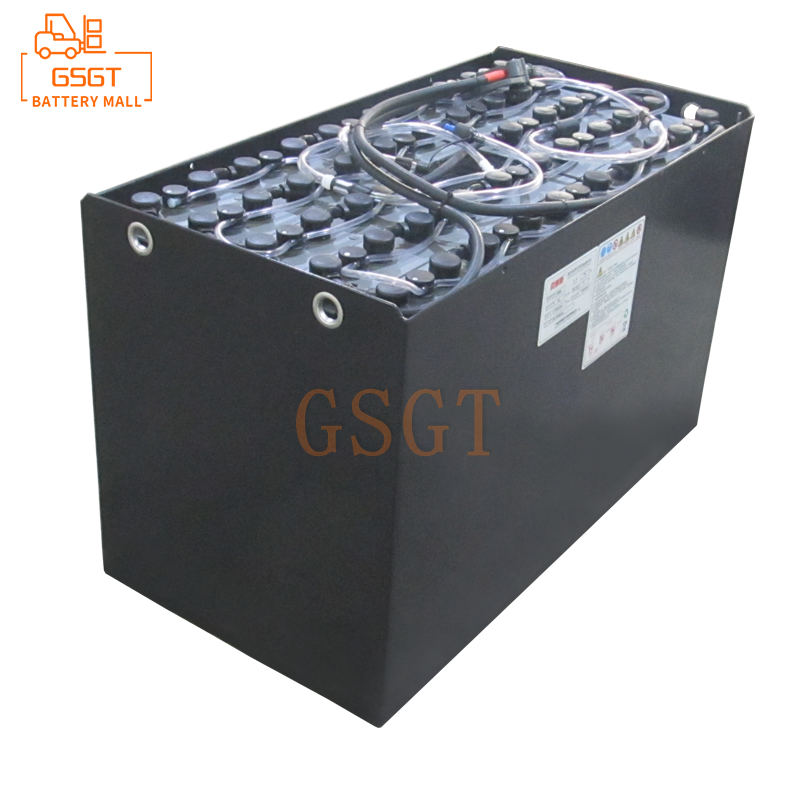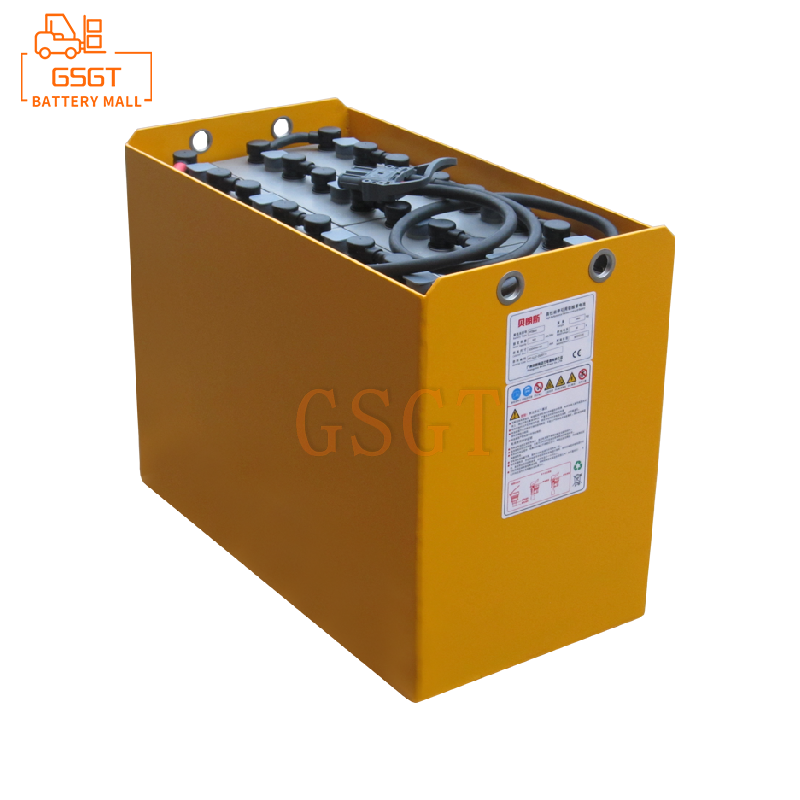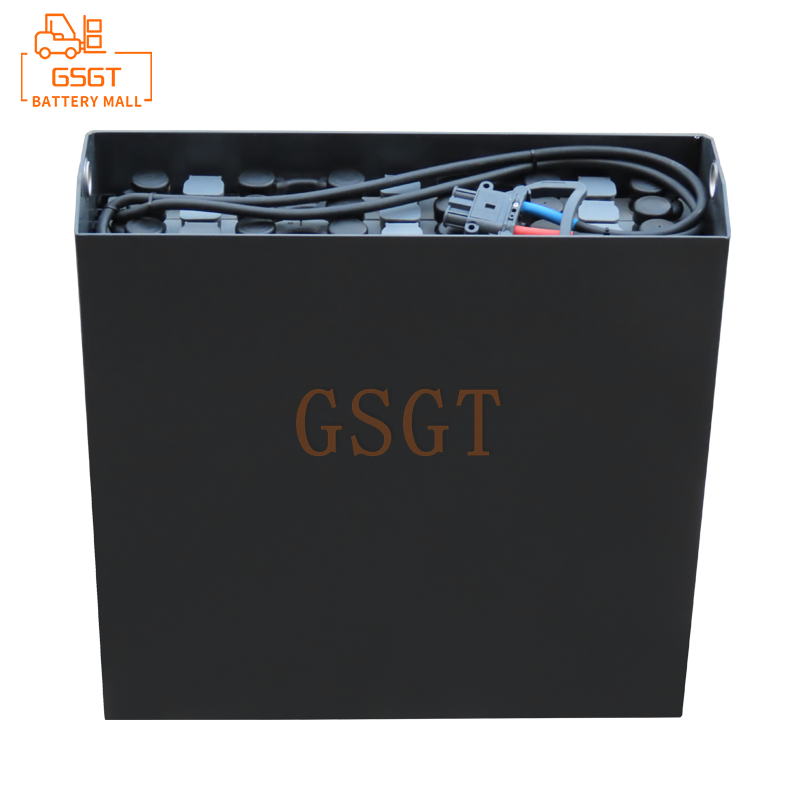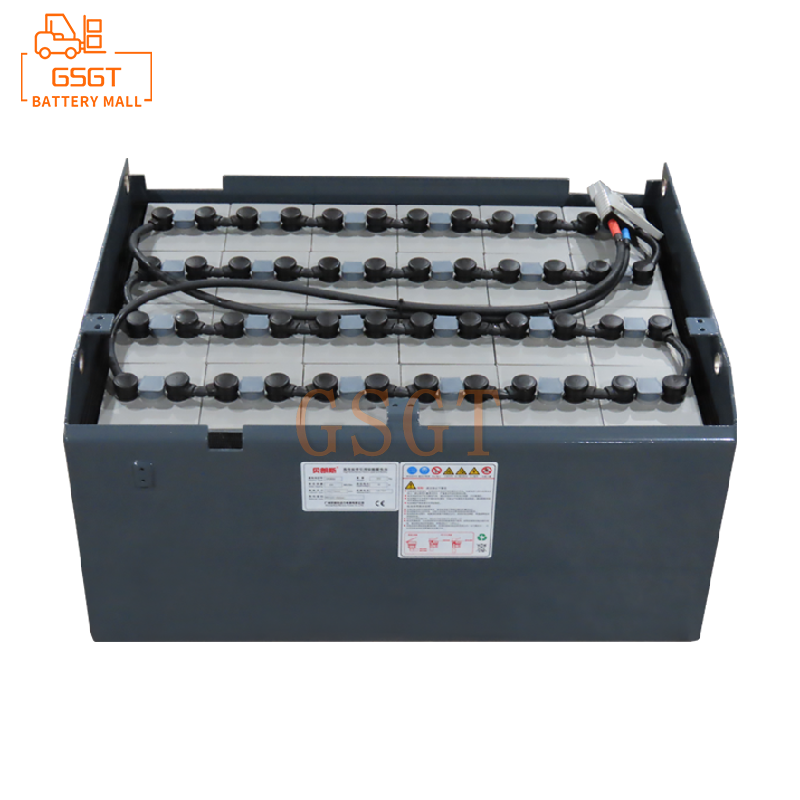Time:2025-06-20 10:40:50
Browse:663
Introduction
In the modern logistics industry, forklifts, as key material handling equipment, are widely used in various links such as warehouses, ports, and logistics centers. The efficient operation of forklifts cannot do without a stable and reliable power source. Lead-acid batteries, with their unique performance advantages, have become an important component of the forklift power system and play a crucial role in the development of the logistics industry. A thorough understanding of the significant role of forklift lead-acid batteries in the logistics industry can help logistics enterprises optimize equipment configuration, enhance operational efficiency, reduce costs, and achieve sustainable development.
The characteristics of lead-acid batteries for forklifts
Characteristics
High power output: Lead-acid batteries can provide a powerful current in a short time, meeting the high power requirements of forklifts during starting, accelerating, climbing slopes, and handling heavy objects, ensuring that forklifts have good power performance and operational efficiency.
Cost-effectiveness: Compared with other types of batteries, such as lithium batteries, lead-acid batteries have a lower initial purchase cost. For small and medium-sized logistics enterprises with relatively limited funds, they offer a higher cost-performance ratio. Meanwhile, lead-acid batteries have mature technology and relatively simple maintenance, which reduces long-term operating costs.
Deep discharge capacity: Lead-acid batteries have a certain deep discharge capacity. During the operation of forklifts, as the battery power gradually depletes, they can continuously and stably output electrical energy, ensuring the normal operation of forklifts without affecting the operation progress due to a rapid decline in power.
Environmental adaptability: Within a certain range, lead-acid batteries can adapt to different environmental temperature and humidity conditions. Through reasonable design and maintenance, it can operate normally in relatively harsh environments, such as high-temperature warehouses and humid ports, providing reliable power support for logistics operations.
The specific role of forklift lead-acid batteries in the logistics industry
Provide stable power to ensure efficient operation
In logistics warehouses, forklifts need to frequently perform operations such as loading, unloading, handling and stacking of goods. Lead-acid batteries, as the power source of forklifts, can provide them with continuous and stable power output, ensuring that forklifts can operate efficiently under various working conditions. The powerful instantaneous discharge capacity of lead-acid batteries enables forklifts to start and accelerate quickly, respond promptly to operation instructions, significantly enhancing the efficiency of goods handling and meeting the high demands of the e-commerce industry for logistics timeliness.
In port logistics, forklifts need to handle heavy goods such as containers. The high power output feature of lead-acid batteries enables forklifts to easily handle heavy-load operations, stably transport goods to designated locations, and ensure the smooth operation of port logistics. According to statistics, when equipped with high-performance lead-acid batteries, the operational efficiency of forklifts can be increased by more than 30% compared to when the power is insufficient, significantly enhancing the overall efficiency of logistics operations.
Adapt to complex working conditions and ensure the continuity of operations
The working environment in the logistics industry is complex and diverse, covering various scenarios such as indoor warehouses, outdoor cargo yards, and cold storage facilities. Moreover, forklifts often operate for long periods of time, sometimes even requiring multiple consecutive shifts. The excellent environmental adaptability and deep discharge capacity of lead-acid batteries enable them to operate stably under these complex working conditions, ensuring the continuous operation of forklifts.
In a cold storage environment, the temperature is usually low, and the performance of ordinary batteries may be significantly affected. However, lead-acid batteries, by adopting a special electrolyte formula and insulation measures, can maintain good discharge performance in low-temperature conditions, providing reliable power for forklifts to handle goods in cold storage. In some logistics centers, forklifts need to work continuously for multiple shifts within a day. The deep discharge characteristic of lead-acid batteries enables them to maintain normal operation of the forklifts even when the battery power gradually decreases, avoiding operation interruptions caused by insufficient power and ensuring 24-hour uninterrupted operation of logistics operations.
The advantage of cost control is obvious
Low initial purchase cost: For logistics enterprises, the cost of equipment procurement is an important expense. The relatively low price of lead-acid batteries enables enterprises to obtain reliable power systems at a lower cost when purchasing forklifts.
The maintenance cost is controllable: The maintenance technology of lead-acid batteries is mature and the maintenance work is relatively simple. Logistics enterprises only need to regularly check the electrolyte level and specific gravity, make appropriate replenishment and adjustment, and perform routine maintenance operations such as cleaning and inspecting the battery appearance to ensure the normal operation of the battery. Compared with some other complex battery systems, lead-acid batteries have lower maintenance costs and are easier to control. In addition, lead-acid batteries have a relatively high recycling value. When the batteries reach the end of their service life, they can be recycled through regular channels. The recycled lead and other materials can be reused, which to a certain extent reduces the overall cost of enterprises.
Contributions to environmental protection and sustainable development
Although lead-acid batteries have certain environmental protection issues during production and use, with the continuous advancement of technology and the strengthening of environmental protection measures, their impact on the environment is gradually decreasing. In the production process, battery manufacturers have reduced the emissions of pollutants such as lead and sulfuric acid by adopting advanced production techniques and environmental protection equipment. During the usage process, logistics enterprises can extend the service life of batteries and reduce the frequency of battery replacement through reasonable battery management and maintenance, thereby minimizing the impact on the environment.
In addition, lead-acid batteries have a relatively high recyclability. At present, China has established a relatively complete recycling system for lead-acid batteries, and materials such as lead and sulfuric acid in used batteries can be effectively recycled and reused. Recycled lead can be used to produce new batteries or other lead products, achieving the recycling of resources and conforming to the concept of sustainable development. In the long run, the wide application of lead-acid batteries in the logistics industry, through its recycling system, helps reduce reliance on primary resources and lower energy consumption, which is of positive significance for promoting the green and sustainable development of the logistics industry.
Conclusion
Forklift lead-acid batteries play an indispensable role in the logistics industry. Their stable power output, good environmental adaptability, cost-effectiveness, and contribution to environmental protection and sustainable development provide strong support for the efficient operation of the logistics industry. Despite challenges such as low energy density and long charging time, lead-acid batteries still have broad application prospects in the logistics industry through strategies such as optimizing battery configuration and management, adopting fast charging technology, strengthening environmental protection management, and exploring the combined application of new battery technologies.
In the future, with the continuous advancement and innovation of technology, lead-acid battery technology will also keep improving, further enhancing its performance and efficiency and reducing its impact on the environment. Logistics enterprises should fully recognize the significance of lead-acid batteries for forklifts, rationally utilize their advantages, actively respond to challenges, and through scientific equipment management and technological innovation, enhance the efficiency and quality of logistics operations, achieve the goal of sustainable development, and remain invincible in the fierce market competition. Meanwhile, the entire logistics industry should also make joint efforts to promote the development and application of lead-acid battery technology and contribute to the green and efficient development of the industry.

$3050

$1690

$1200

$2610

MESSAGE
Professional And Efficient
Security
Affordable Price
Professional Services